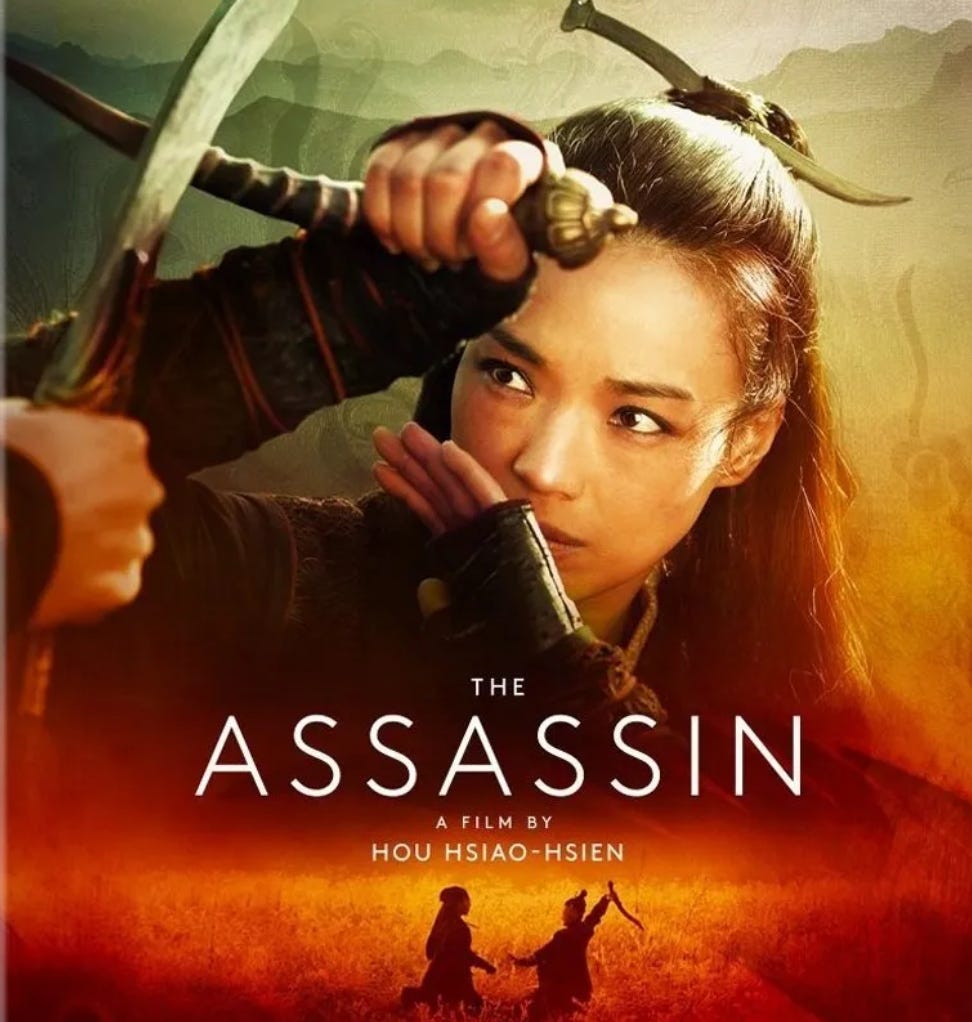The Assassin is a terrible film - which I liked
The Sage Enjoys a Challenge - and this film Delivers
The Assassin (from 2015) is a terrible film in many respects.
Almost nothing in the film is explained. For one example among many: two characters fight for no reason, they never exchange a single word. The viewer is not given any clue about the reason for their conflict. This lack of explanation is deliberate on the part of the director, as he could easily have had the characters talk to each other about what they are doing and - most importantly - why. In the film, what little dialog we hear is largely unimportant.
The main character says very little - I think she has 10 lines of dialog in the entire film - and she remains almost expressionless throughout the film. The main character - Yinniang - is such a blank slate and does so little that there is no reason to care about her.
A great deal of screen time is wasted on static shots: a lake shore, a large ancient palace at night, a huge cliff in the middle of the afternoon.
With a plot which makes almost no sense, with a main character who seems to be emotionally dead, and with a great deal of wasted time on landscape shots, what’s to like about the film?
For the Sonoma Sage, there are three main reasons why the film is enjoyable to watch.
This film is what historical research is like - 99% of the time.
Usually events in the distant past are known because we have a single surviving account of the event. We can often deduce that the surviving account is biased in a particular direction but that tells us little about what is missing. Usually historians have to make deductions based on additional facts such as geography and tiny fragments of evidence gathered from many, seemingly unrelated writings, inscriptions, and objects.
We usually we don’t know the motivations of any of the people involved in historic events. Take an easy example: the Battle of Zama where Scipio defeated the Carthaginian army under Hannibal. There is one ancient source, Polybius and we have nothing at all from the Carthaginian side.
The Film Feels Authentic
Most of the time, the movie doesn’t feel like a movie.
Watching the The Assassin is like viewing a documentary from 1,300 years ago (assuming they had cameras and film). We can guess why these events were filmed at the time because they were interesting: a trained assassin returns to her family after an absence of at least 10 years. No one knows what she will do and most everyone is afraid of her. One can imagine the documentary film crew from 1,300 years ago trying to film this strange event and, partially succeeding.
Like most historical events, a great deal of common knowledge was either left unsaid or the film vanished in the intervening centuries. Further, if the documentary crew had hired a narrator to explain what happened, that narration has been lost. The result being: the audience today has little more than isolated fragments of film which barely forms a story.
The film is mysterious in that trivial details are highlighted while much more important conversations and discussion of motives are lost.
The Film is Everything I Would Never Do
The Sage has written many papers, briefs, essays, and books over his life. The Sage prides himself on explaining carefully what is going on and why. The Sage wants the past to be understood because the Sage believes - as the Chinese believe - that the past is a mirror and a guide for the present. This movie stands in direct opposition to everything the Sage believes. The Assassin presents the past as nearly unknowable. Watching it, the Sage is compelled to imagine the motivations of the characters because almost nothing is explained.
The Sage feels confident that the creator of this film Hou Hsiao-hsien, knows everything there is to know about this time period (about 850 A.D. in China) and yet, rather than trying to show what he knows, he choose to conceal. It was an extraordinary decision and it cost him dearly. The film lost money and the director will likely never make another film again. The Assassin is an almost unique film and one which very few people will ever enjoy. The Sage cannot recommend the film but the Sage liked it a great deal.
One final note, the end of the film features a woman, the assassin’s teacher, standing at the edge of a cliff while fog blows around her. Over the next five minutes of the film, the fog engulfs the landscape. The Sage wonders: how long did the film crew have to wait before this event occurred? It’s incredible to imagine the set-up required for this simple scene in which nothing happens except for four lines of dialog. Aesthetically, the film is stunning on many occasions.


